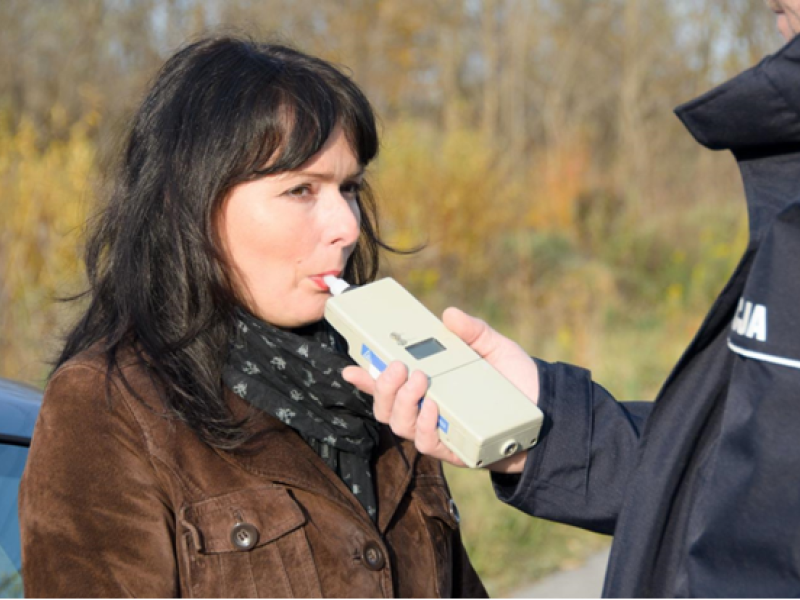
— DUI
Can You Refuse A Breathalyzer?
From the moment you are pulled over on suspicion of driving under the influence (DUI) of drugs or alcohol, the officer will be looking for indications that prove you are intoxicated. From the questions they ask to the tests they want you to take, anything can potentially be used as evidence that you were operating a motor vehicle while under the influence. What should you do if the officer asks you to take a breath test? Can you refuse a breathalyzer? Drivers should be aware of when they can refuse a sobriety test and what the consequences of such a refusal may be. If you are facing DUI charges or charges from refusing to take a sobriety test, the Virginia traffic law attorneys at Driving Defense Law may be able to help. You may schedule a free case evaluation by calling (757) 929-0335.
Can You Refuse a Sobriety Test in Virginia?
There are two different types of sobriety tests in Virginia: field tests and chemical tests. Field tests are tests such as walking toe-to-heel in a straight line and turning or lifting one foot, and balancing on the other foot. Chemical tests sample your breath, blood, or urine to screen for intoxicating substances. A field test does not provide conclusive evidence that a driver is intoxicated, but failing one may be used to allow the officer to request a chemical test. A chemical test provides a quantitative amount of alcohol or drugs in the driver’s system at the time the breath, blood, or urine was provided and tested.
Field sobriety tests are not mandatory, and drivers may refuse them without facing legal penalties. A preliminary breath test (PBT), done with a handheld device on the roadside, is also not mandatory and may be refused without legal penalties. However, refusal to participate in these tests may result in being arrested. After arrest, the driver will be taken to the police station where they will be asked to take a breathalyzer again. This breathalyzer at the station falls under Code of Virginia § 18.2-268.2, which specifies that the act of operating a motor vehicle constitutes implied consent to a test of breath or blood to screen for intoxication when administered at the police station within three hours of arrest for certain driving violations. Refusal to take this test may result in legal penalties, including a suspended license. Drivers should be aware that they can still be convicted of DUI without breathalyzer or blood test results.
Should You Refuse a Breathalyzer in the United States?
While all 50 states have laws regarding DUI, the specific regulations vary by state. In some states, both field sobriety tests and chemical tests, such as a breathalyzer, fall under implied consent. In these states, a refusal to take any test can often in legal penalties. In other states, such as Virginia, field tests and a roadside breath test do not fall under implied consent, while a breathalyzer in the police station does fall under implied consent.
Can you refuse a breathalyzer? Refusing a roadside PBT may result in arrest, but it also limits the evidence against the driver for DUI. Without the results of a PBT, which are often unreliable if the machine has not been calibrated properly or recently, there may be insufficient evidence to charge the driver with a DUI. However, Virginia’s implied consent law establishes that a person arrested for certain traffic violations may be “required” to take a breath or blood test at the police station. Attempting to refuse this test may result in legal penalties, even if the driver is not charged with DUI. In other words, you may refuse a field sobriety test and a PBT, but we strongly recommend that you do not refuse a breathalyzer at the police station after arrest. If you are facing DUI charges or charges resulting from refusing a sobriety test, Driving Defense Law may be able to assist you.
What Happens if You Refuse a Breathalyzer?
If a driver refuses to take a breathalyzer at the police station, they violate the implied consent law. A driver’s first violation of the chemical test compliance requirement is considered a civil offense, and may result in a one-year license suspension with no possibility of getting a restricted license. This suspension is in addition to any license suspension the driver may face if also convicted of DUI.
The second and any subsequent refusals are charged as Class 1 misdemeanors. As such, the second and subsequent refusals may each result in a three-year license suspension, a jail sentence, and a large fine. These penalties are in addition to any penalties the driver may face if they are convicted of DUI as well.
Can You Refuse a Blood Test for DUI?
A blood test is another chemical test. As with a breathalyzer, the results of a blood test indicate the amount of alcohol or drugs in a driver’s system at the time the blood was drawn and tested. Also similar to a breathalyzer, blood tests fall under Virginia’s implied consent law. The blood test functions in some ways as a secondary option in cases where the breath test is for any reason unavailable, or in which the accused is not physically able to submit to the breath test. This means that refusing a blood test carries the same penalties as refusing the breathalyzer at the police station.
Penalties for Commercial Drivers
Commercial drivers pose an important exception to the general rules of chemical testing and implied consent. Per the Virginia Department of Motor Vehicles (DMV), if a commercial driver refuses a breathalyzer or blood test, they face a one-year disqualification for the first offense and a lifetime disqualification for the second offense. Additionally, if the commercial driver refuses while transporting hazardous materials, they will receive a three-year disqualification for the first offense. This disqualification from driving commercial vehicles will apply even if the driver is convicted of DUI and given a restricted license that allows them to drive while their license is suspended.
Have You Refused a Breathalyzer?
Can you refuse a breathalyzer? On the side of the road, you can. At the police station, you cannot. Should you refuse a breathalyzer on the side of the road? While it may decrease the evidence against you, a refusal may lead to arrest and a breathalyzer at the police station. Drivers should carefully consider all the potential consequences before deciding whether to refuse a breathalyzer on the side of the road or at the police station. If you have refused a breathalyzer and are now facing charges as a result, with or without being charged with DUI, Driving Defense Law may be able to help. If you are in the Chesapeake, Norfolk, Portsmouth, Suffolk, Hampton, Newport News or Virginia Beach areas, you may call (757) 929-0335 to schedule a free case evaluation to go over your legal options.

